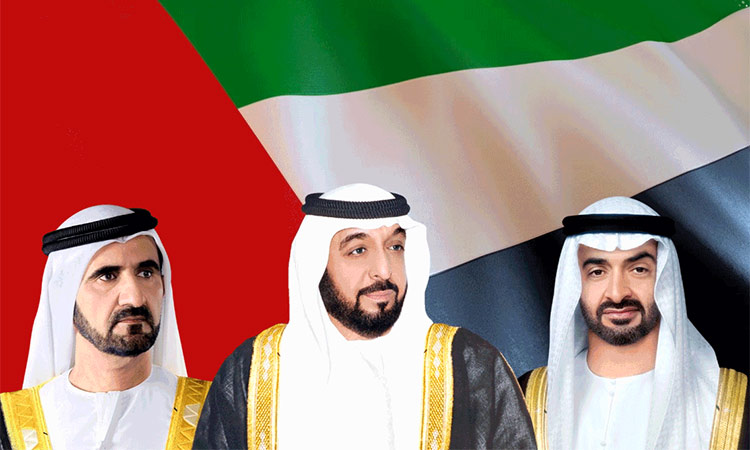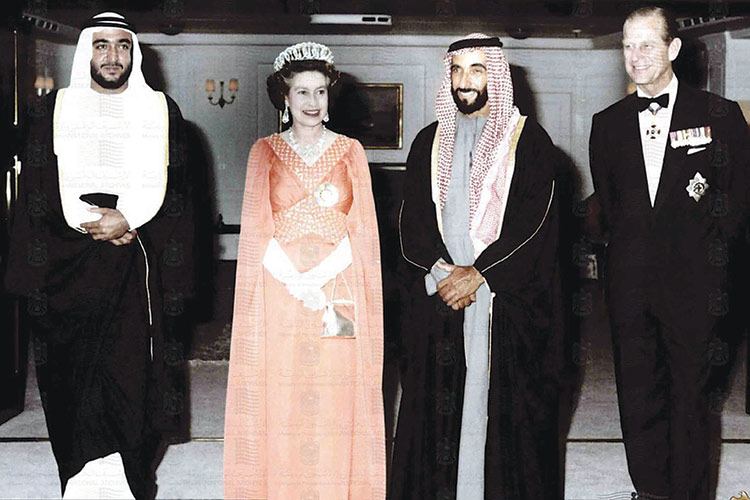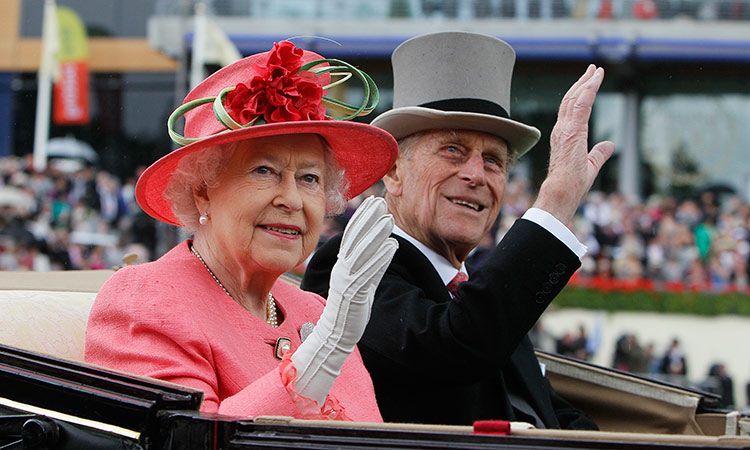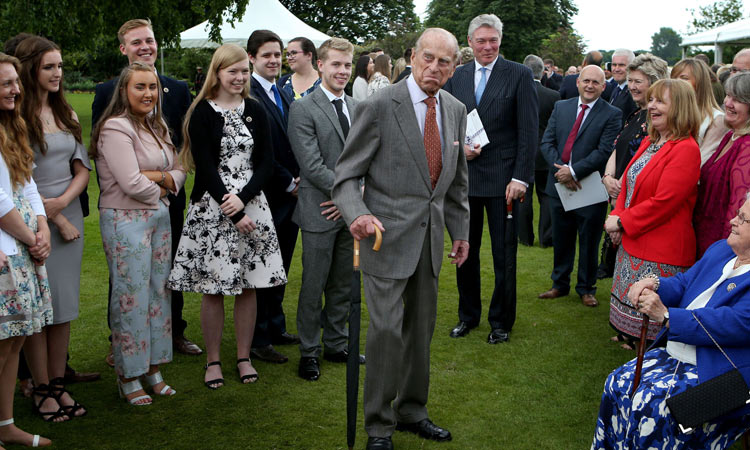Prince Philip, a fillip to an everlasting legacy
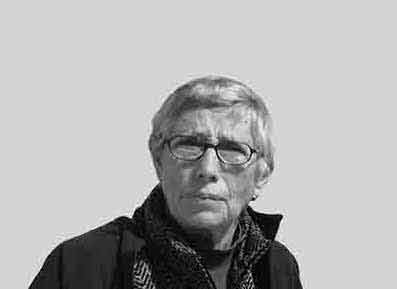
Michael Jansen
The author, a well-respected observer of Middle East affairs, has three books on the Arab-Israeli conflict.

Philip was a member of the Greek royal family. File
With the aim of expanding its coverage, the Federation’s Ministry of Tolerance and International Award has signed a memorandum of understanding. Currently available in 60 international schools, the award is doubly important as the movement brings together resident youth from a wide range of nationalities, backgrounds, and cultures.
Initially for boys aged 15-18, the Award was announced in February 1956 and girls were enrolled 18 months later when it was found to be a roaring success. The scheme was designed and run by Brigadier John Hurt, who led the first successful British expedition to the summit of Mount Everest in 1953. The programmes take between one and four years to complete and the awards — bronze, silver, and gold — are for different lengths of time and levels of participation. The International Award was formally established in 1988 and has grown rapidly.
The Jansen family had a happy association with the DofE, as the Award is affectionately known. My daughter, Marya, was born in Beirut, settled in Cyprus due to Lebanon’s civil war, and attended the English School in Nicosia. She signed up for the DofE at 15 when they begin to work for the bronze medal and went on to earn the gold. There was a “bus worth” of students from her age group, she said. “No one dropped out. All got the gold.” A boy who had a heart condition was helped by his fellows to perform the physical requirements of the scheme. Medals were awarded at a ceremony at the British embassy.
The school, like many in the UAE, had many nationalities and levels of society which formed impenetrable cliques. The DofE melded these factions into one, provided girls and boys who were only children a feeling of belonging, and taught teamwork. Teachers, who go through training, were rigorous and imposing standards and older children, who assumed leadership roles, helped tutor younger ones. My daughter said they took long hikes through the rugged Troodos mountains, volunteered with the fire department and the cancer home, did sports, took part in theatre productions, and completed projects. Hers was a establishing a “Dodo club,” with help from the Jersey Zoo, to teach younger children about wild animals and conservation. “We had about 30 kids from schools around town,” she said. “I am still in contact with one girl a few years younger than me.”
During the summer between her junior and senior years, the school’s DofE chapter went to Crete for the “adventure” part of the scheme. Marya and three other girls decided to climb Mount Ida in the footsteps of a World War II British special operations team led by Stanley Moss and Patrick Leigh Fermor which kidnapped General Heinrich Kreipe, who commanded the German force occupying the island.
The inspiration for this madcap adventure was a book, entitled “Ill Met by Moonlight,” by Moss. A film, starring Dirk Bogarde and David Oxley, was based on a book which tells the story of the British team’s abduction of Kreipe and their perilous journey to safety. Kreipe was a hardened soldier whose crackdown on the Cretans earned him the nickname the “Butcher of Crete.” Since all of Crete had participated in his capture, the journey chosen by the DofE team generated considerable interest, particularly in villages where partisans had taken part in the kidnapping.
Disguised as German military police, the British team seized the general while he was en route to his residence. They drove through several German checkpoints before taking off on foot in the mountains with members of the tough Cretan resistance. After an arduous and difficult journey, pausing in villages where the partisans were in control, the kidnappers and the general reached the shore where a British naval vessel picked them up and took them to Cairo. While the Britons had a fear-packed adventure, the Cretan guerillas were the true heroes in this tale as they stayed behind to face the vengeful Germans. Kreipe was held in prisoner of war camps in Canada and Wales and released by Britain in 1947. He met Fermor and three of the Cretan fighters during 1972 on a Greek television programme.
The DofE girls, one Cypriot, two British, and my daughter, who is of Indian and US parentage, started out in a village where they met several members of the Cretan resistance who drew the route taken by the kidnappers on their tourist map. The girls spent a freezing night on the slopes of the mountain where their tents provided no protection from the sharp wind. Stiff and tired in the morning they hiked to another village where they were expected because the first village had rung ahead, fed and feted before making for the beach where the British navy collected the kidnappers and Kreipe.
Other members of their DofE group plotted out other adventures, some hiking along the coast, others in the mountains, using map-reading skills learned during training in Cyprus.
The DofE is a learning, character-building experience, which is precisely why Prince Philip launched it without really predicting that it would expand round the globe and be his everlasting legacy.
